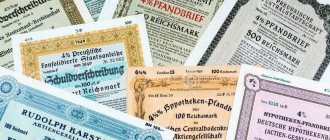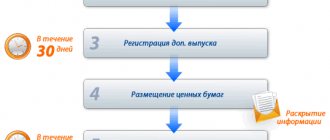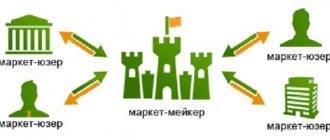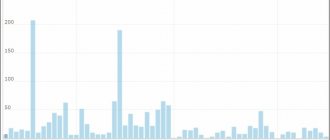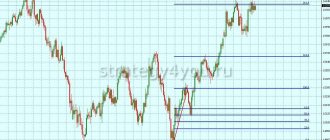olegas Aug 18, 2022 / 147 Views
When a trader begins to work with the largest Moscow Exchange in our country, he invariably encounters such a concept as quotation lists. On the Moscow Exchange there are such lists, divided into three main categories (levels).
To include its securities in these lists, the issuer must undergo a listing procedure, which includes checking for compliance with the rules and standards established by the exchange platform. To do this, he writes a corresponding application and submits all the necessary documents to the exchange commission.
For example, below are the requirements of the Moscow Exchange for placing mortgage-backed bonds in quotation lists of one level or another:
If the exchange commission deems it possible to include the securities presented by the issuer in its listing, then it assigns these securities a certain level and places them in the appropriate quotation list.
What is a listing
The exchange cares about investors and its reputation, so it checks every security and every issuer. If the check is successful, the securities are allowed for trading. This procedure is called listing, it is enshrined in Federal Law No. 39-FZ “On the Securities Market”:
“Securities listing is the inclusion of securities by the trade organizer in the list of securities admitted to organized trading for the conclusion of purchase and sale agreements, including the inclusion of securities by the exchange in the quotation list.”
To start trading, the issuer collects a package of documents and submits an application to the trading organizer for listing the security. From submission of the application to the decision on inclusion, it takes from 5 to 20 working days.
VTB Bank submitted an application for listing the bonds on September 8. Data source: official website of the Moscow Exchange
The exchange decided to include securities in the first level of listing 19 days later - on October 5. Bonds became available for purchase the next day
For each type of financial instrument, the exchange sets different listing requirements and enshrines them in the official document “Listing Rules”. They can be viewed on the official websites of Russian exchanges:
- Listing rules of Moscow Exchange PJSC
- St. Petersburg Exchange listing rules
If the rules are not followed, the exchange may refuse to place the paper.
Listing and IPO are two different concepts. An IPO is the first public sale of a company's shares to an unlimited number of people.
Listing is any placement of securities on an exchange. This could be an additional issue of shares, their placement on another exchange, for example on the New York exchange (in addition to the Moscow one), or the issue of new financial instruments, such as bonds or futures.
More on the topic:
Learn to invest
March 23, 2021 Buy, sell or invest: what are stocks and how do they appear 15 minutes
Type of listing on the stock exchange
By purpose:
- Primary listing. Conducted on the national exchange. Also called an initial public offering (IPO).
- Secondary. Access to foreign exchanges. Available only after initial listing.
- Special. An issue for specific purposes for a narrow circle of investors.
Types by procedure (only for secondary listing):
- Direct listing. The most common listing on a foreign stock exchange.
- Cross-listing or cross. Submitting applications to multiple exchanges in different countries. If approved, you can receive a simplified verification procedure for the rest. This speeds up the inspection process.
- Dual listing. Submitting an application to several exchanges within one country. This is done to increase the liquidity of its securities.
- Depository. For the issue of depositary receipts.
What is delisting Delisting is the removal of a security from trading on an exchange. There can be many reasons for this. For example, the company was bought by a large shareholder and he does not want his company to be listed on the market.
What is a quotation list
Investors cannot always assess risks on their own because they do not have access to issuers' financial documents. The exchange does this for them. After review, she places each security at one of three listing levels:
- first level of listing - quotation list of the first (highest) level;
- second level of listing - second level quotation list;
- the third level of listing is the non-quoted part of the list of securities.
In official documents, they omit the part about the quotation list and call the securities simply “1st level shares” or “2nd level bonds”.
On October 1, 2022, 3,197 securities were traded on the Moscow Exchange, of which 23% were of the first level, 11.5% of the second and 65.5% of the third. The cells on the left indicate the number of securities in the category, the number on the right indicates the number of issuers
The higher the listing level, the more severe the requirements and conditions are imposed on the issuer to comply with. Such requirements and conditions are fixed by the “Listing Rules” of the exchange.
At the first level of listing, blue chips are traded, such as Gazprom and Yandex. This also includes government securities - federal loan bonds.
The exchange evaluates instruments in the unquoted list only for compliance with the legislation of the Russian Federation and the requirements of the Bank of Russia. The Central Bank considers them high-risk, so it has limited transactions with them to unqualified investors.
More on the topic:
Learn to invest
November 09, 2021 New shares on the Moscow Exchange in 2022 11 minutes
More than 300 shares of foreign companies are traded on the unquoted list of the Moscow Exchange, and only three shares are on the first level of the quotation list.
The St. Petersburg Exchange offers more securities from foreign issuers, so almost all instruments are on the unquoted list. But the Exchange Rules enshrine the same division into three levels of listing as on the Moscow Exchange.
Securities of the same issuer may be at different listing levels. Gazprombank placed 58 securities on the Moscow Exchange. Of these, 18 are included in the first level of listing, 19 in the second and 21 in the third.
Levels
Level 1 listing is the most reliable securities owned by the largest companies and industrial giants.
Level 2 listings are companies that have also passed the exchange’s reliability check, but are a little more “risky.” For example, a stable but young company may be included in such a list.
Level 3 listing – companies that were unable to pass the listing stages. Investors wishing to purchase shares of such companies should rely on their own due diligence analysis. The exchange is not responsible for their securities.
MICEX listing levels
Changing the list level and delisting securities
An issuer may voluntarily upgrade or downgrade a security or ask to be delisted. The exchange, in turn, can forcefully downgrade a security's listing, stop or limit trading, and even delist all of the issuer's securities in the event of default or bankruptcy.
To upgrade your listing level
securities, the issuer collects documents and financial statements, submits an application to the exchange and undergoes an audit.
Exchange-traded bonds of Interleasing LLC were tested and entered the quotation list of the exchange on September 27
Downgrade listing
may be the issuer or the exchange itself if the information in the submitted documents turns out to be incorrect. For example, the documents indicate a larger production volume than actually exists. So the exchange lowered VEB.RF bonds from the first to the third level, because their total value was below 2 billion rubles.
Source: Moscow Exchange website
More on the topic:
Learn to invest
April 28, 2021 Moscow and St. Petersburg exchanges: how they work and what is the difference 15 minutes
The exchange stops trading in securities or removes them from the list
for different reasons. This may be the desire of the issuer, early redemption of the security, non-compliance with the requirements of the exchange or the legislation of the Russian Federation, default and bankruptcy proceedings of the issuer. The removal of securities is called delisting.
The Moscow Exchange stopped trading in the bonds of Renaissance Insurance Group JSC because the company repaid them ahead of schedule
The Moscow Exchange delisted the bonds of Archer Finance LLC. Investors have three months until December 27 to sell or wait for an offer
The main risk of the owner of securities during delisting is a sharp drop in the value of securities at the time of delisting announcement. The procedure lasts from several days to three months, and therefore the investor can make an informed decision: sell everything at once, wait for a favorable price or an offer to buy back the securities.
For example, in case of default of the issuer, delisting is carried out no earlier than one month from the date of the decision on delisting by the exchange. The fastest delisting is the next business day. It is carried out only if the security is put up for trading without an agreement with the exchange. This may be a technical glitch in the system.
At least 35 days before delisting on the stock exchange, the issuer must offer an offer - repurchase of securities at the average market price for six months or more. After delisting, the securities can still be sold on the over-the-counter market.
If the issuer has not gone bankrupt, delisting may be beneficial. This can happen if a company decides to go private and offer a share price that is 30% higher than the market price. Or the papers will be replaced with others with better conditions. For example, on September 11, 2020, the director of the second largest telecommunications company in France announced a share buyback. The offer price for Altice shares was 23.8% higher than the closing price of trading on September 10.
More on the topic:
Learn to invest
August 30, 2021 What are ETFs and is it worth investing in them 15 minutes
Stages of the procedure
- Submitting an application from the issuing company to initiate the listing procedure and include its assets in the quotation list.
The quotation list is a “trust list” into which the issuer’s securities are included after their comprehensive analysis by the exchange committee. Quotation lists can be of the first level, second, and, in some cases, third.
- Concluding an agreement for expert assessment between the trading platform and the company issuing shares.
- Providing all information about the company necessary for the examination. These are constituent documents, accounting, profit and loss statements, and other documents necessary to analyze the company’s compliance with the exchange’s criteria.
- Conducting an examination, during which indicators such as profitability, liquidity and dynamics of the organization’s development are identified.
- Discussion of the results of the examination by the quotation commission.
- Conclusion of an agreement in case of a positive decision of the commission.
Scheme of stages of the listing procedure
In those rare cases when the issuer does not fully meet the criteria of the exchange, but, for some reason, is interesting to investors or the exchange itself, it is included in the pre-listing list . Shares of companies on the pre-listing list are available for trading, but on the over-the-counter platform.
How to access tools from the third level of listing
Investors will gain access to unlisted instruments by becoming qualified investors or passing a broker test. Before this, only a few tools are available to them:
- shares, depositary receipts and ETFs of the quotation list (1st and 2nd level of listing) - issuers of high reliability;
- shares of foreign issuers, depositary receipts and ETFs not included in quotation lists (below the 2nd level of listing), if they are included in the calculation of indices or the profitability on them is determined by indices that are included in the list of the Central Bank of the Russian Federation;
- mutual fund units, with the exception of closed mutual fund units;
- OFZ, with the exception of OFZ-IN and OFZ-PK;
- Russian bonds with a credit rating of the issuer, issue or person providing security for the bonds not lower than AAA on the Expert RA/ACRA scale;
- foreign bonds with a rating of the legal entity that provided security for the security not lower than AAA on the Expert RA/ACRA scale, while the issuers of such bonds are registered in the countries of the Eurasian Economic Community, the European Union, Great Britain or Ireland, and an agreement has been concluded with the country of issue on the avoidance of double taxation.
More on the topic:
Learn to invest
June 18, 2021 Qualified and unqualified investors: who is who 8 minutes
There is an exception: if an investor traded a certain type of security before October 1, then after October 1 he can do this without a test. For example, if an investor bought Alcoa shares in August, after October 1, all securities from the “Shares of Foreign Issuers” category are available to him. For more information about testing and what will help you prepare, see the article “Investor testing: what it is and how to pass it.”
Purchasing securities from the quotation list does not guarantee profit and the absence of risks. Just like buying a third-level listing instrument does not mean that the investor will lose everything.
Criteria and requirements for issuers
Each exchange approves its own requirements for inclusion of shares and bonds in the quotation list. Such criteria must include:
- an indicator of the total value of the company's assets;
- the amount of net profit based on the results of work over several years;
- the number of securities expected to be placed;
- the company's capitalization is at least 60 billion rubles;
- publication of financial statements under IFRS for the last 3 years.
Naturally, this is a non-exhaustive list of requirements that may be presented to the issuing company.

